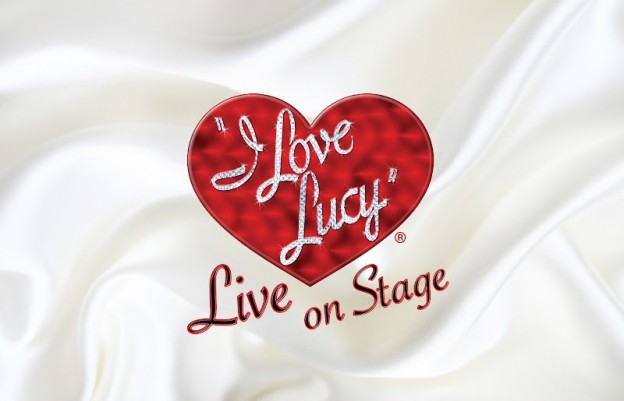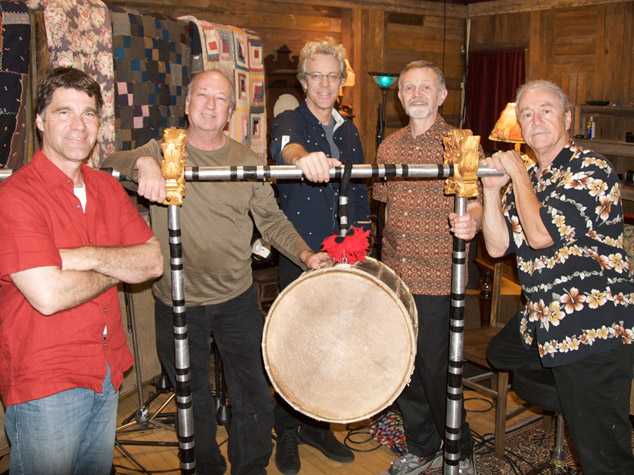I Love Lucy Live On Stage: A Doozy of a Lucy

A Doozy of a Lucy
In the clever I Love Lucy Live On Stage at Bass Performance Hall, the ’50s reign and the laughter is unavoidable.
published Thursday, March 13, 2014

Fort Worth — I Love Lucy Live on Stage is an enjoyable light evening’s entertainment wrapped in nostalgia, with no risk of offense and saved by some inspired slapstick. For people who say there’s no theater for them, here it is. A cute and clever production of broad, cartoonish, physical comedy set to a ‘50s soundtrack; everyone in the cast is so cheerful, boasting wide smiles and animated eyes. Women with shellacked bob hairstyles and big red lips, men with Brylcreem hair, and lots and lots of whiteness. No wonder Ricky seemed so exotic.
In the production, which runs at Bass Performance Hall in Fort Worth through Sunday, presented by Performing Arts Fort Worth, two episodes of I Love Lucy, using the original scripts, are presented as if being taped at the Desilu Playhouse.Bass Hall attendees are incorporated as the live studio audience. The conceit is maintained throughout, from the opening admonitions against photography—a Brownie camera was “confiscated”—to the closing bows presented as the finale of the taping.
Cleverly staged and constructed (Kim Flagg and Rick Sparks adapted it for the stage, and Sparks directs), I Love Lucy Live on Stage features two huge semi-circle curtains that allow the action to switch between the apartment, laid out exactly as it was on television, and scenes at Ricky’s Club Tropicana. When not in a scene, the concealed band contributes a live musical soundtrack, which is a big boost to the show. Two ‘50s female characters that work the aisles pre-show are almost too cute, but they’re later incorporated into the stage proceedings.

A hyper-enthusiastic Mark Christopher Tracy portrays Maury, the Playhouse host who keeps the whole show running along and informs the audience about the then new-fangled tech of video production. He aces the insult style of a chauvinist Catskills comic glossed with ‘50s white-male entitlement. The applause light was explained and the taping of cutaway shots was shown along with the re-taping of flubbed lines.
Much of Tracy’s duty is to spin references such as “hopping a train” or “the 49 states” to set the retro time period, commenting after “Shine on Harvest Moon” about how people will never actually go there. In a bit on how colorful live Lucy is compared to what ends up on black and white televisions, he hints that color television is soon to come. But for now you can, says Tracy, “Watch the show later on your Philco 21-inch picture tube with balanced beam.”
The bulk of I Love Lucy plots involve Lucy trying to manipulate Ricky into something, so it’s understandable that the show creators included “The Benefit” (1952). Lucy not only connives Ricky into singing at Ethel’s women’s club engagement, but inserts her tone-deaf self into the act. There was a bit of song, a bit of dance, and a whole lot of Lucy’s patented petulance. Sirena Irwin excelled in her Lucyisms: the twisting of words with vowels that extend and contort; a billboard face that broadcasts surprise, worry and scheming; and the classic ”Oh Ricky” wails.
After a staged intermission of a cute-on-a-stick studio quiz and a set of ‘50s pop songs that quickly bored the younger audience members, the show really caught steam with “Lucy Has Her Eyes Examined” (1953; both of these episodes were originally written by Jess Oppenheimer, Madelyn Pugh and Bob Carroll, Jr.). The plot about Lucy, Fred (Peter Kovian, filling in for Kevin Remington on opening night) and Ethel (Joanna Daniels) finagling an audition with Ricky’s Broadway producer pal made the most of Bill Mendieta’s charming Ricky and pushed the band to the fore. It also reminds what a fun couple the Mertzes are when allowed to bring their vaudeville act out of retirement.
A more complicated plot than most I Love Lucy, theepisode has Lucy also pushing Ricky to see an ophthalmologist—Carlos Martin doing a Frank Nelson (“EEE-Yeeeeeeeeesssss?”) so perfect it makes you cry for happy to hear that imperious voice again—but she ends up in the chair and nearly blind from dilation eye drops. Lucy’s audition doing a jitterbug routine plays out as vigorous slapstick in which Lucille Ball excelled and Irwin does as well. Multiple players are dragged into the unfolding fiasco to the point of high farce, with an out of control Lucy being flung about the stage while a swinging band matches her moves.
The hawking of ‘50s products is relentless though the production, yet provides some of the most engaging parts. The Cystaltone Singers, decked out suits and taffeta dresses with crinolines, are over-caffeinated with happy juice as they hawk products. The Alka-Seltzer ad is cute, but the one for Brylcreem (“A little dab will do ya”), complete with an 8-foot-tall sandwich board of a tube, caused older members of the audience to visibly swoon. Rather disturbing, yet authentic, is the Dorothy Gray Salon Cold Cream ad that shows how well the cream removes radioactive dirt. Geiger counters were gleefully used to test. The original ad is below.
Some might hope to see more of Lucille Ball the comedian, and I Love Lucy Live On Stage shows how she subsumed so much of her talent to make room for others. Yet it still makes it a pleasure to remember what a funny woman she was and re-appreciate a show with strong women characters for the ‘50s. Plus you get to hear Ricky sing “Babalu!”
» Read our interview with the lead actors here.
original article and video at: http://www.theaterjones.com/ntx/reviews/20140313063027/2014-03-13/Performing-Arts-Fort-Worth/I-Love-Lucy-Live-on-Stage

